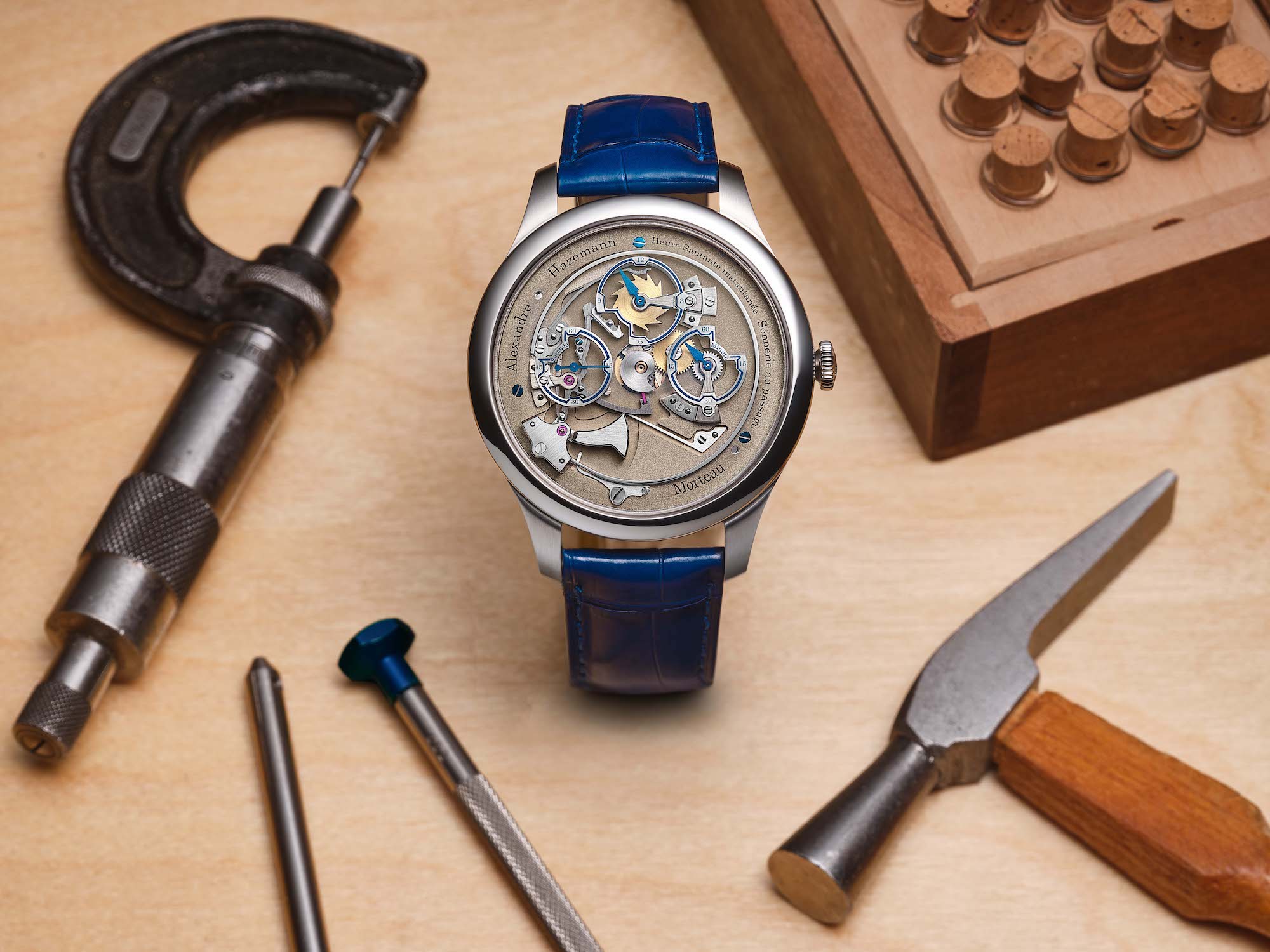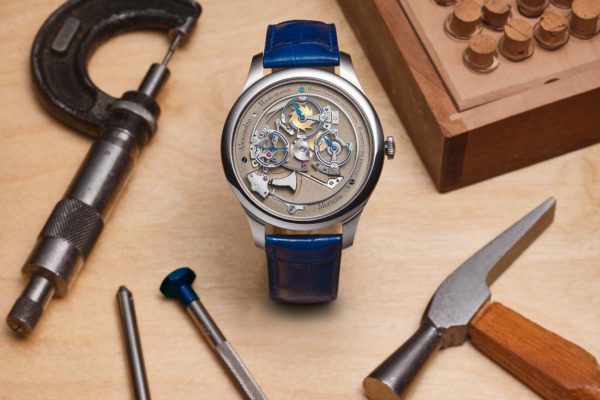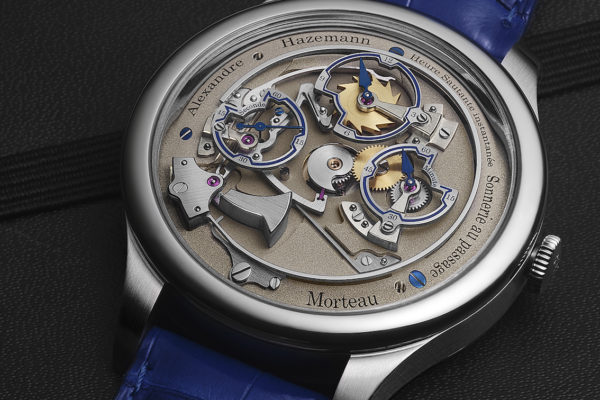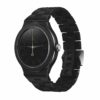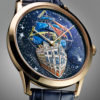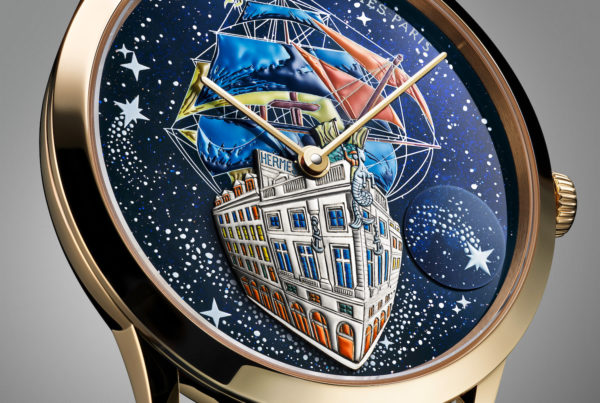Alexandre Hazemann VS François-Paul Journe: joint interview
The result of the Young Talent Competition F.P.Journe organised by François-Paul Journe with the support of The Hour Glass, a luxury watch retailer in Asia, was revealed on 30 March 2023. The prize of 20,000 francs was awarded to Alexandre Hazemann for his AH.02 Signature watch in the presence of Michael Tay, Managing Director of The Hour Glass. It was the perfect opportunity to bring together the master watchmaker and the young apprentice and to interview them together. Isabelle Cerboneschi
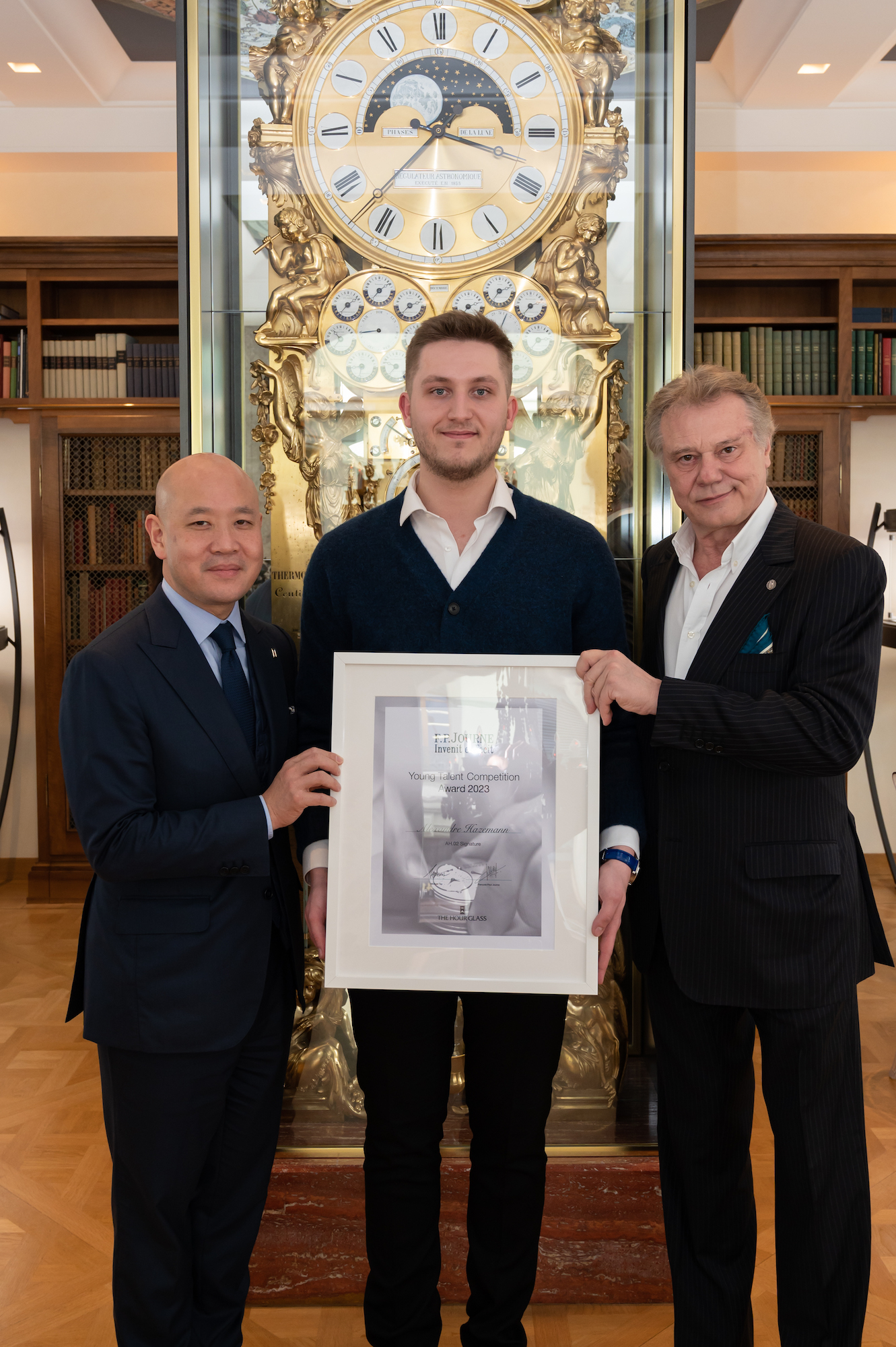
Every year since 2015, the F.P.Journe Young Talent Competition prize is awarded to a talented apprentice. Worth CHF 20,000, it was awarded on 30th March to Alexandre Hazemann for his AH.02 Signature watch.
Like all 7th year watchmaking students at the Edgar Faure high school in Morteau, he had to create a “school watch”. The specifications were very precise: a watch with a striking mechanism at the passage of the hours and an instantaneous jumping hour that would also answer the philosophical question: “What do we need to be happy? His well-balanced version, with its impeccable finish, won over the jury.
After obtaining his Diplôme national des métiers d’art et du design at the École d’Horlogerie in Morteau, Alexandre Hazemann joined the CPNE, the Neuchâtel vocational training centre based in Le Locle. His passion for the art of watchmaking comes from his father, who works in a company in the Val de Travers. During his studies, the 23-year-old apprentice, who grew up in Pontarlier, nurtured a dream: to become an independent watchmaker and to co-create a company with a long-standing friend, Victor Monnin, also a student at the school. They helped each other throughout the process of creating their school watch and would like to anchor this collaboration in a more concrete project. “Renaud and Papi started out like this,” François-Paul Journe recalls.
Even as a child I knew I wanted to be a watchmaker. I worked hard to dream that one day I would have my own workshop, Alexandre Hazemann
The ceremony organised at the Manufacture F.P.Journe took place in small groups. A few hours before, the winner and the master watchmaker were sitting in an office to answer a few questions. There was something highly symbolic about seeing them together: the former’s career has not yet begun, while the latter is considered one of the greatest watchmakers of the century. The young experience of one allowed the other to bring out memories and revelations. That is part of the beauty of this exercise. One does not offer a prize without awakening one’s own original passion for a perpetual art.
You have to make a lot of mistakes. This is called experience. That’s what I wish for him: to make many mistakes and to have a box full of failed components like I do, François-Paul Journe
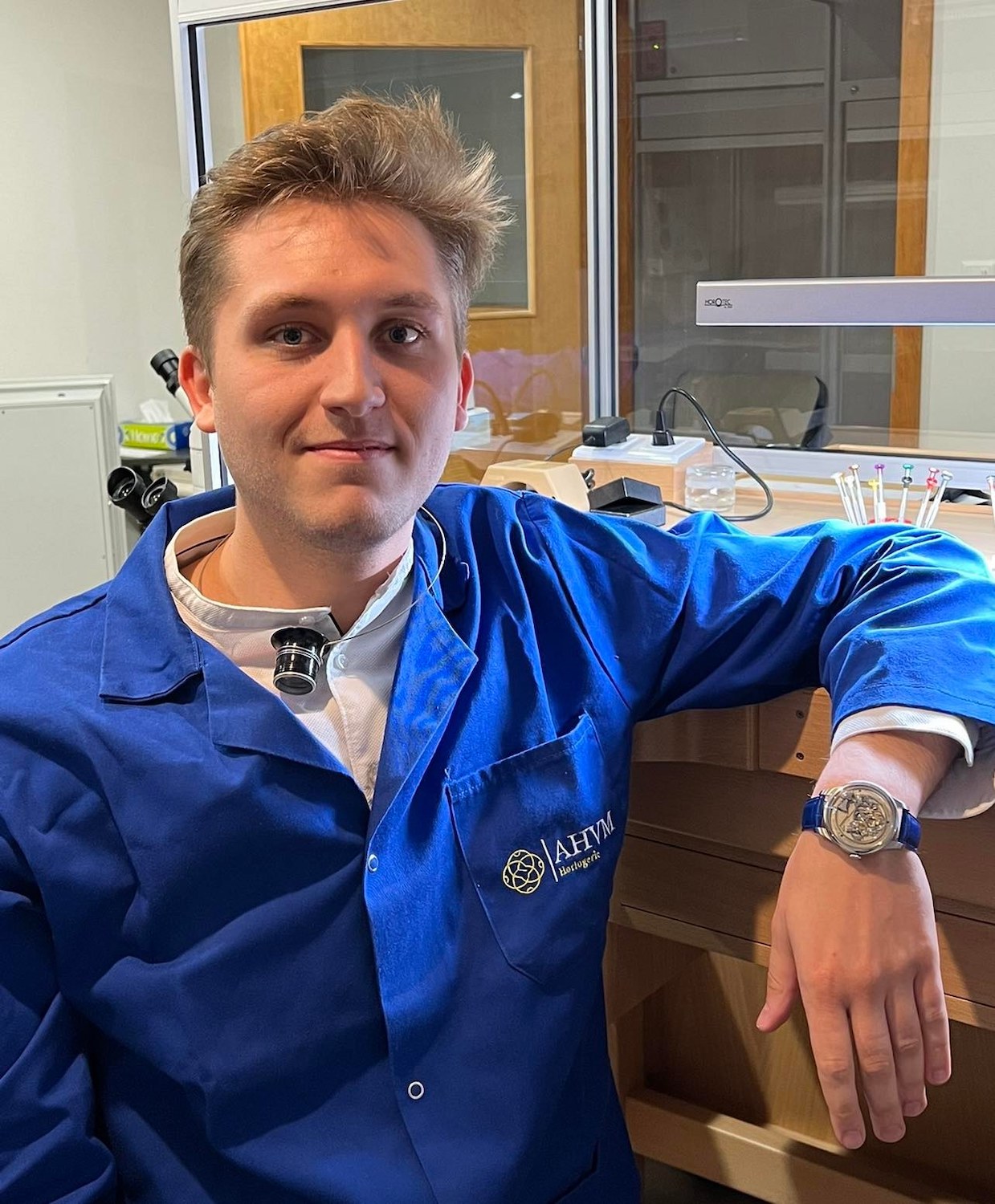
INTERVIEW
Alexandre Hazemann, how did you feel when you learned that you were the winner of the Young Talent Competition?
Alexandre Hazemann : I was very moved, happy and proud that my work was watched and appreciated. When you start at the watchmaking school, you see the final year students working on their final year project and you imagine yourself in their place. You dare to hope that you will be able to take part in this competition. Winning it is the culmination of a dream, it is a consecration!
François-Paul, when you saw Alexandre’s watch, did you immediately know that he would be the winner?
François-Paul Journe: I cannot answer this question because I am not the only one to decide. There is a jury and I don’t know what the other jurors voted, but I think this watch was chosen for the quality of its finishing.
What did you particularly like about this project?
François-Paul Journe: It’s the interpretation. When you make a watch, you interpret functions and you design the piece in a certain way. What I find interesting is all the research that you can feel behind the choice of shapes and the overall homogeneity of the result.
How did the idea for this prize come about?
François-Paul Journe: In 2014, I visited the stand of the Académie Horlogère des Créateurs Indépendants in Basel. The AHCI had set up this prize but didn’t have much money. I proposed that we organise it together. It lasted two years and the third year Vincent Calabrese, the co-founder of the AHCI, told me that the academy was withdrawing from the project. So I continued the adventure on my own and we started to give the award here, at the Manufacture.
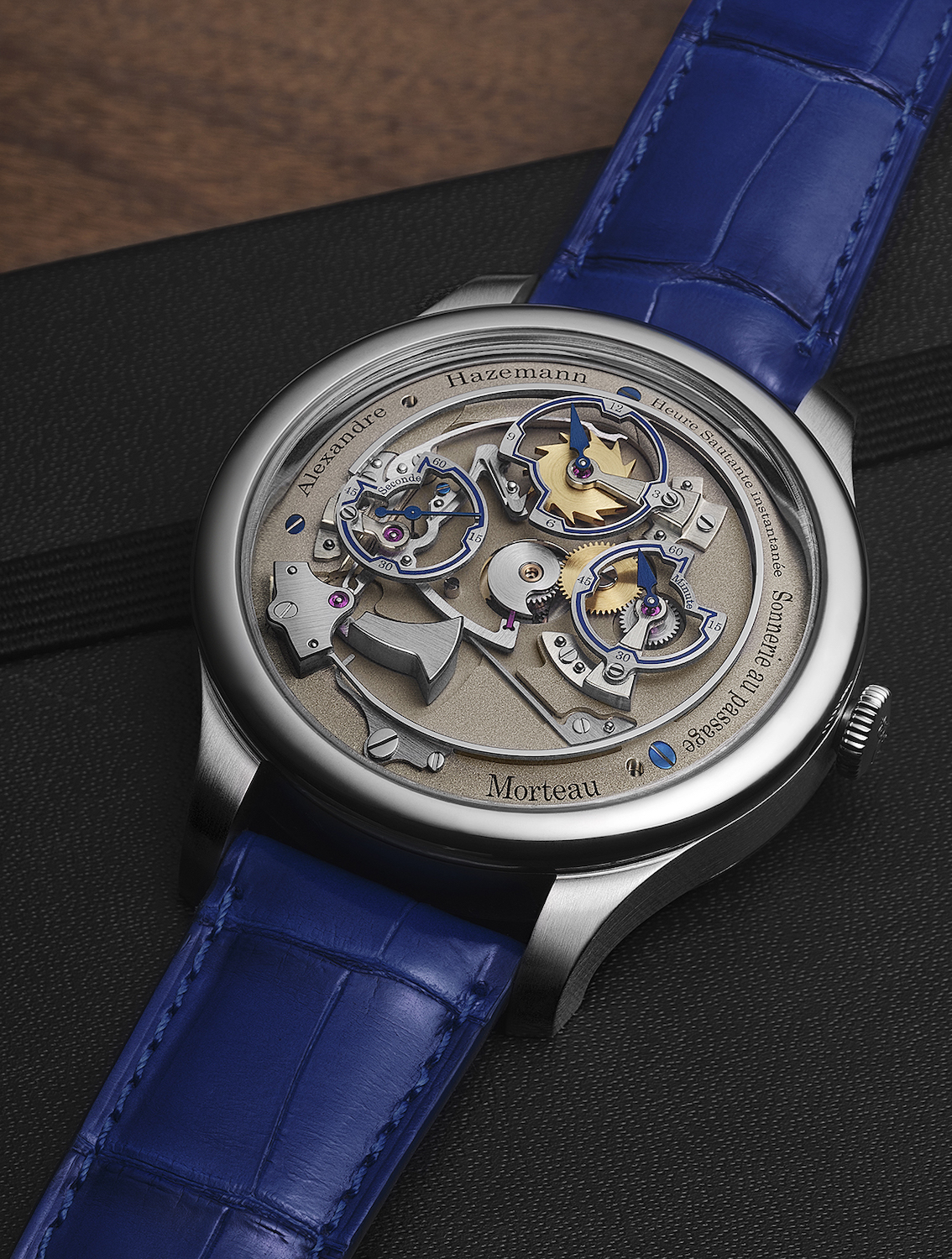
Why did you want to continue to organise this competition?
François-Paul Journe: You wrote a first article about me in Le Temps in 1999. I was lucky enough to know people like Gabriel Tortella and Jean-Claude Pittard, who also wrote about me. I like the idea of giving someone their first article. The second one, he will get himself.
The winner gets also a prize.
François-Paul Journe: The purpose of the prize is to be able to buy materials. I started my career in my uncle’s workshop. But in 1985, when he left to settle in Aix en Provence, I had to set up on my own. In 1987, I received the Bleustein-Blanchet Vocation Foundation Prize and what do we do with the money we are given? We buy tools!
Is that what you are going to do too?
Alexandre Hazemann: Yes, of course! This prestigious award is a stepping stone for me.
In addition to meeting the technical requirements, your watch had to answer the question: What is missing to make us happy? Let me ask you the question back.
Alexandre Hazemann: I don’t think I’m missing anything. I try to create a framework in which I can be happy and live nobly. I want to have fun every day and do what I like. Even as a child I knew I wanted to be a watchmaker. I worked hard to dream that one day I would have my own workshop.
How did you technically approach this philosophical question of happiness?
Alexandre Hazemann: I decided to think about passion. Watchmaking is a profession that makes me vibrate: it’s what gets me up in the morning in a good mood. In this creation, I wanted to interpret both this fascination and my vision of watchmaking.
What is this vision?
Alexandre Hazemann: I like people to understand the architecture of the movement, its symmetry, its lightness, just by looking at the watch. I want people to enjoy reading the time, to appreciate the moment.
You say that watchmaking was a childhood dream. Your father works in this industry. Did he pass on this passion to you?
Alexandre Hazemann: My father is a CNC setter in a watchmaking company in the Val de Travers and over the years there have been many discussions between father and son. I became interested in what he was doing and as time went on, he started to show me things, to teach me. I immersed myself more and more in this profession, I did internships and that was it…
What was the biggest challenge with your project?
Alexandre Hazemann: It was to make it work. We are students: we don’t have a lot of professional experience. It was like a long-distance race: every step was important. We had to identify the problems and solve them one by one. This regularity, this rigour were important.
François-Paul, in your opinion, what does this watch bring to watchmaking technology?
François-Paul Journe: It is an original organisation but it does not bring anything new. That would be difficult. A timepiece has become a piece of jewellery, an object of pomp and circumstance. There are people who make watches in a certain way and others who, like me, try to tell the time while remaining anchored in tradition. But in all cases, it is always a matter of bias. In the case of Alexandre, it is an aesthetic choice: the movement is beautifully arranged in accordance with a set of specifications.
Would you have chosen the same solutions if you had had to make this specific watch?
François-Paul Journe: I didn’t think about that. If I had had the same requirements, I would probably have done more or less the same thing, but when I create a watch, I set my terms of reference.
Alexandre, was your choice to reveal the entire movement in response to technical or aesthetic questions?
Alexandre Hazemann: It was a question of aesthetics. I wanted to make the complication visible and experience pleasure when wearing the watch.
You did all the finishing touches by hand?
François-Paul Journe: When you make a unique piece, you do everything yourself! When I used to create my one-off pieces, I finished them all by hand.
Alexandre Hazemann: That’s how you understand that the things you do are part of a whole process. You spend time decorating a piece and if you scratch it, you have to start again.
François-Paul Journe: I have a plastic box full of pieces that I failed. I’ve kept them all.
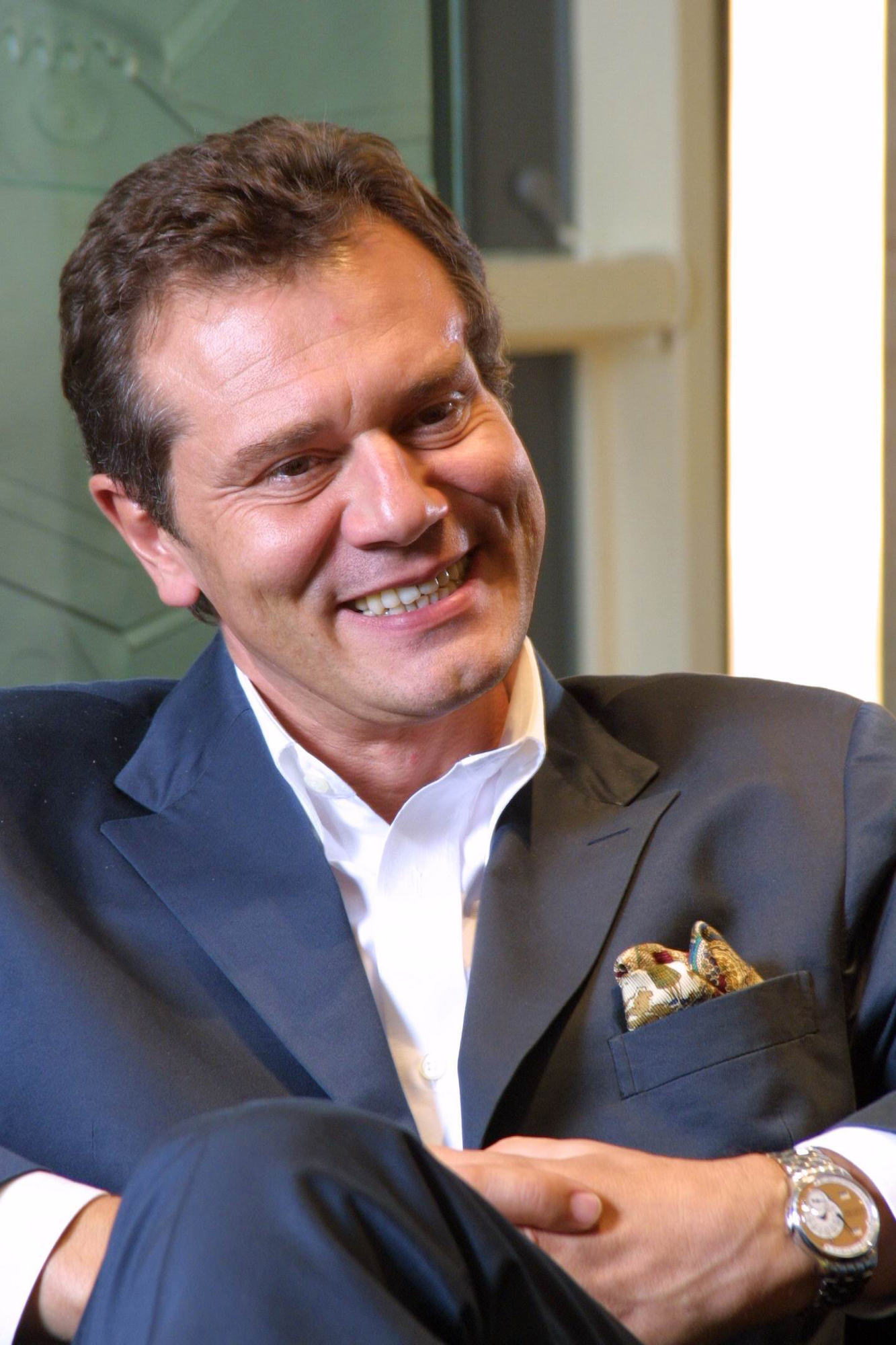
Why did you keep them?
François-Paul Journe: Because there are thousands of hours of work in that box! I will never throw them away. These pieces speak of a time when I made watches entirely by hand. One day I’ll have to take that box, cast it in a block of transparent plastic and make a paperweight out of it. (laughs).
François-Paul, does Alexandre’s passion awaken in you the memory of your own passion, when you decided to become an independent watchmaker?
François-Paul Journe: That was a different case. I was working in antique watchmaking with my uncle and we mainly worked with antique dealers. At that time, in the 1970s, only a few Japanese and a few Swiss were still making mechanical watches. I always heard people talking about tourbillons but I had never seen one. They weren’t very common. And as I didn’t have much money, I said to myself that if one day I wanted to have a tourbillon, I would have to make it myself. My passion started from there. When I began to work on it, I didn’t know how to make a watch. Restoring, making a missing or broken component, is one thing: a missing part, in the field of restoration, is meant to fit into a coherent universe. But when you have to learn how to make all the parts, assemble them and make the watch work, that’s quite another story!
In your case, Alexandre, you already had the movement available?
Alexandre Hazemann: Yes, it is a Lajoux Perret LJP 6900 that we reworked. We received all the components in a box, but we had to machine the plate and then mount the movement. We couldn’t create it entirely because we only had 9 months to do it. When you’re studying, that’s not much time.
Could your watch be sold?
Alexandre Hazemann: I could sell it, I’ve had requests, but I don’t want to. This piece is quite an adventure! They say that a watch has a soul and I want to respect that.
François-Paul Journe: I understand you, I never sold my first watches, whether it was my first pocket watch or my first wristwatch. They are in the safe. It’s a bit like Scrooge with his lucky penny: our first watch is our lucky penny!
Alexandre, is independence your dream?
Alexandre Hazemann: Yes, to make your own creations and live your own dreams, that’s what I want to do. It’s magical!
François-Paul, this was also your case: you immediately chose independence.
François-Paul Journe: I have always been independent. The question of doing things differently never arose because I am not made to work in an imposed structure. When I was a child, at school, the authority of the teachers was already unbearable for me. That’s why I was expelled from all schools. In the 1980s, I worked on my own, until I set up my first company in Sainte-Croix. When you’re alone you can’t be sick. So I started to become an entrepreneur. It was like a martingale: I wanted to create a company that could continue even if an accident happened to me.
François-Paul, what do you wish for Alexandre?
François-Paul Journe: To continue, to develop… Some people ask me how I managed to do this or that. I tell them that to do something well, you have to make a lot of mistakes. This is called experience. That’s what I wish for him: to make many mistakes and to have a box full of failed components like I do.

